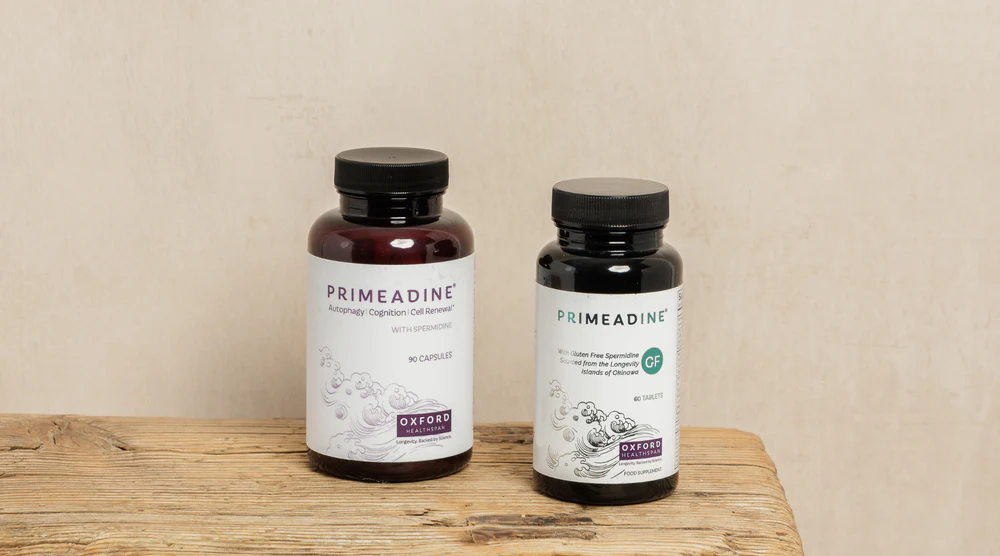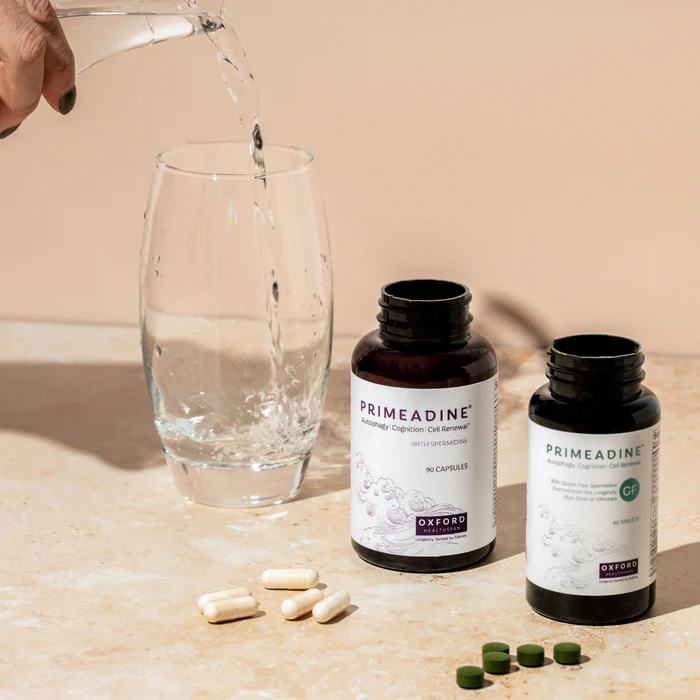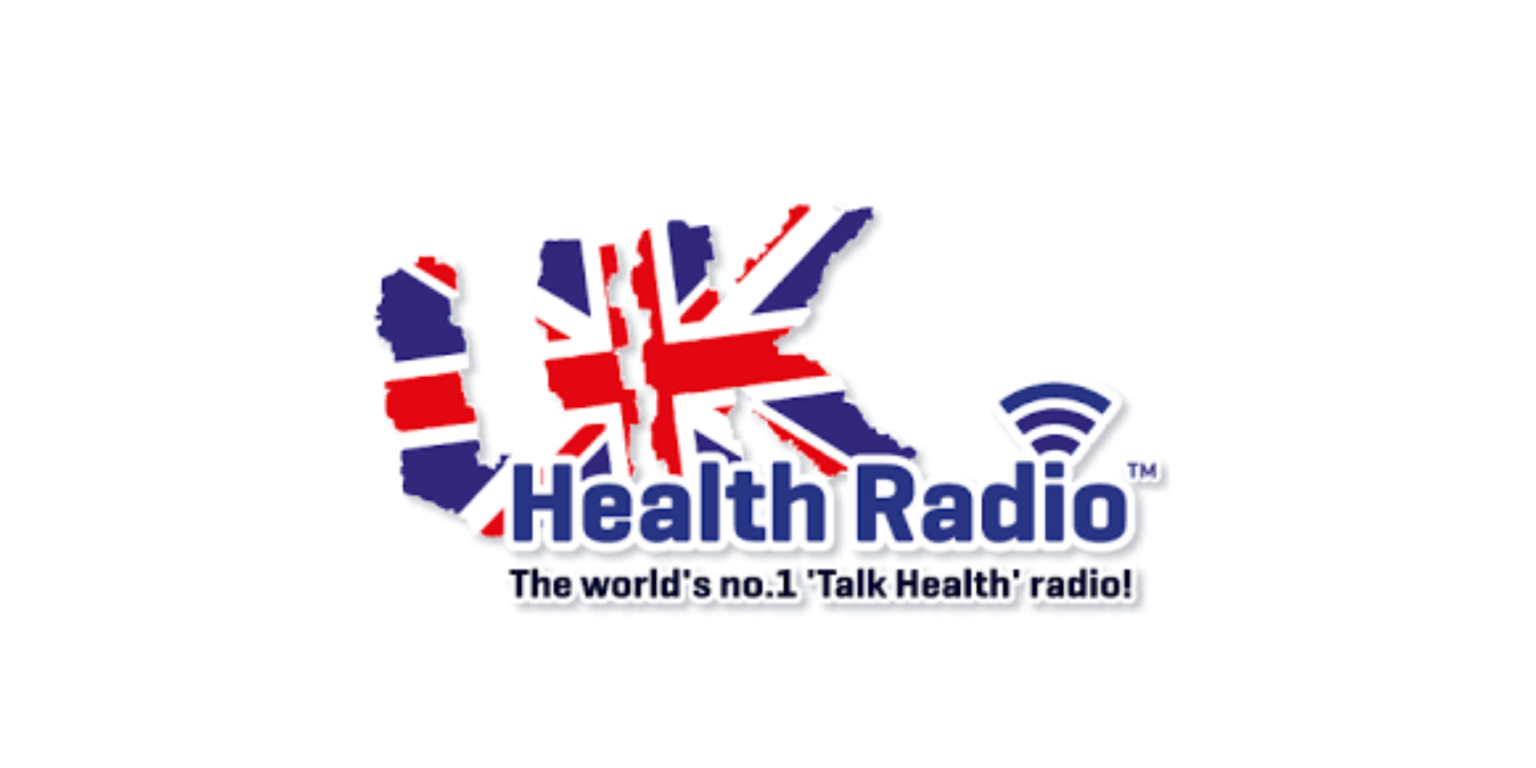
How Spermidine Can Help Reset Your Sleep and Hormonal Balance During Perimenopause
Why You’re Exhausted but Can’t Sleep
You’re juggling a million things.
Leading teams, family, handling a never-ending to-do list—and let’s be honest, you’ve probably got a colour-coded calendar to match. But when your head finally hits the pillow, your brain’s still buzzing, and sleep? Nowhere to be found.
Sound familiar?
Welcome to perimenopause, where your hormones throw your circadian rhythm off-kilter, cortisol spikes when it shouldn’t, and melatonin checks out early.
But what if I told you there’s a molecule—a naturally occurring one, no less—that could help bring your internal clock back in sync, support your hormones, and even make your skin glow while it’s at it?
Let’s talk about spermidine.
Understanding Your Circadian Rhythm (and Why It’s Off Right Now)
Your circadian rhythm is like your body’s built-in conductor. It regulates everything from when you feel alert to when your hormones fire to when you drift into deep, restorative sleep [1].
When it’s working well? You feel clear, energised, and balanced.
But when stress, late nights, and the hormonal rollercoaster of perimenopause enter the scene, things get messy:
- Melatonin production gets disrupted, making it harder to fall or stay asleep [2].
- Oestrogen and progesterone fluctuate, throwing cortisol and sleep cycles out of whack [3].
- Night sweats, hot flashes, and middle-of-the-night wakeups can become regular visitors.
It’s no wonder so many women tell me they’re waking up at 3AM with racing thoughts, unable to switch off, even though they feel bone-tired.
Meet Spermidine: Your Natural Sleep & Hormone Ally
So, what exactly is spermidine?
Spermidine is a polyamine molecule found in every living cell. It plays a crucial role in cell renewal, metabolism, and—here’s the exciting part—regulating your internal clock [4].
Research shows spermidine has unique abilities to support circadian rhythm balance and hormonal harmony, making it especially helpful for women navigating perimenopause.
Here’s how:
- Resets Your Sleep-Wake Cycle
Spermidine helps modulate the very genes that control your circadian rhythm—acting like a reset button for disrupted sleep patterns [1].
The result? Smoother melatonin production, deeper sleep, and fewer frustrating night-time awakenings [5].
- Supports Oestrogen Naturally
One study tracked women supplementing with spermidine over 30 days and saw up to a 37% increase in estradiol levels [6].
More balanced oestrogen = improved sleep, fewer hot flashes, and steadier moods.
- Tames Cortisol, Boosts DHEA
High cortisol at night = restless sleep and that wired-but-tired feeling.
Spermidine has been shown to lower cortisol levels while increasing DHEA, your body’s anti-stress hormone [7]. Translation: calmer evenings, better sleep, and sustained energy the next day.
- Promotes Cellular Clean-Up (aka Autophagy)
Spermidine stimulates autophagy—your body’s internal “spring cleaning” process. This helps optimise hormone production, including melatonin, and supports longevity at the cellular level [8].
Bonus? Autophagy is also key for skin health. When your cells are functioning optimally, it shows on your face.
Where to Find Spermidine Naturally (And Why It’s Often Not Enough)
You’ll find spermidine in foods like:
- Wheat germ
- Mushrooms
- Aged cheese
- Soybeans
- Green peas
- Natto (fermented soybeans)
Plus, your gut microbiome naturally produces spermidine too.
But here’s the rub:
As we age, our gut’s ability to produce spermidine declines. Combine that with hormonal shifts, stress, and modern diets—and it becomes harder to get the levels you need from food alone.
You’d have to eat a LOT of natto and wheat germ to hit optimal levels (and let’s face it, natto isn’t everyone’s favourite).
Why I Personally Swear by Primeadine Spermidine
For me, spermidine is a nightly non-negotiable.
I use Primeadine every evening because I’ve seen firsthand how it:
- Helps me fall asleep faster and stay asleep longer
- Smooths out my hormonal shifts
- Leaves my skin noticeably brighter (yes, autophagy works from the inside out!)
Whether it’s the Primeadine Original (from Japanese wheat germ extract) or Primeadine GF (from chlorella and citrus peel, perfect if you’re gluten-free), both formulas include prebiotics to support your gut’s own spermidine production over time.
This is one of those quiet but powerful tools in my toolkit—and it might just become yours, too.
Ready to Support Your Sleep and Hormones Naturally?
Perimenopause may feel like your body is on a rollercoaster, but small, science-backed steps like this can help you reclaim your rhythm and restore balance.
If you’re ready to biohack your sleep, support your hormones, and feel more like yourself again, spermidine is worth having in your corner.
Learn more about Primeadine here. It contains natural, food-sourced bioavailable spermidine (the only type proven by science) with prebiotics to support your gut’s own production. And if you’d like to try Primeadine for yourself, click here and use code ANGELA15 to save 15%
References
[1] Reddy S, Reddy V, Sharma S. Physiology, Circadian Rhythm. 2023 May 1. In: StatPearls [Internet]. Treasure Island (FL): StatPearls Publishing; 2025 Jan–. PMID: 30137792
[2] Zisapel N. New perspectives on the role of melatonin in human sleep, circadian rhythms and their regulation. Br J Pharmacol. 2018 Aug;175(16):3190-3199.
[3] Brown AMC, Gervais NJ. Role of Ovarian Hormones in the Modulation of Sleep in Females Across the Adult Lifespan. Endocrinology. 2020 Sep 1;161(9):bqaa128.
[4] Ni YQ, Liu YS. New Insights into the Roles and Mechanisms of Spermidine in Aging and Age-Related Diseases. Aging Dis. 2021 Dec 1;12(8):1948-1963.
[5] Wortha SM, Schulz J, et al. Association of spermidine blood levels with microstructure of sleep-implications from a population-based study. Geroscience. 2024 Feb;46(1):1319-1330.
[6] Bendera R, Wilson L. The Regulatory Effect of Biogenic Polyamines Spermine and Spermidine in Men and Women. Open Journal of Endocrine and Metabolic Diseases, 2019.
[7] Bendera R, Wilson LS. The Regulatory Effect of Biogenic Polyamines Spermine and Spermidine on Hormones in Humans. Open Journal of Endocrine and Metabolic Diseases. 2019.
[8] Madeo F, Bauer MA, Carmona-Gutierrez D, Kroemer G. Spermidine: a physiological autophagy inducer acting as an anti-aging vitamin in humans? Autophagy. 2019 Jan;15(1):165-168
Share Article
Subscribe to receive the latest health tips
Get my latest health, fitness, biohacking, anti-aging tips, and podcast episodes delivered straight to your inbox.
Recent Podcasts
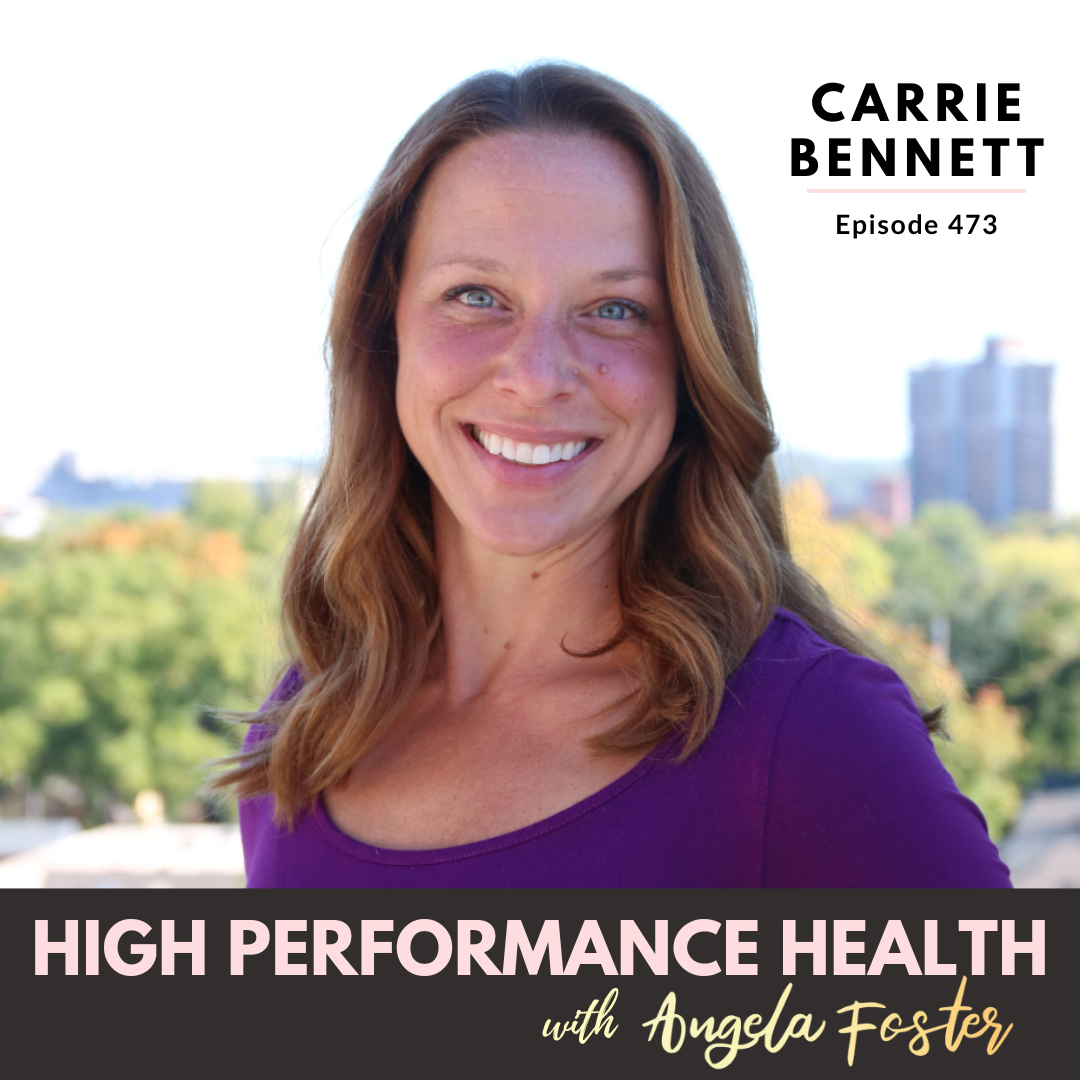
EP 473- Bitesize: The Real Reason You’re Still Tired Even When You Hydrate
In this bite-sized but powerful episode of High Performance Health, I sit down with the incredible Julie Gibson Clark—named one of the slowest-aging women alive—to talk about tuning into your body, spotting subtle hormone imbalances, and how a fibroid diagnosis challenged everything she thought she knew about her health.
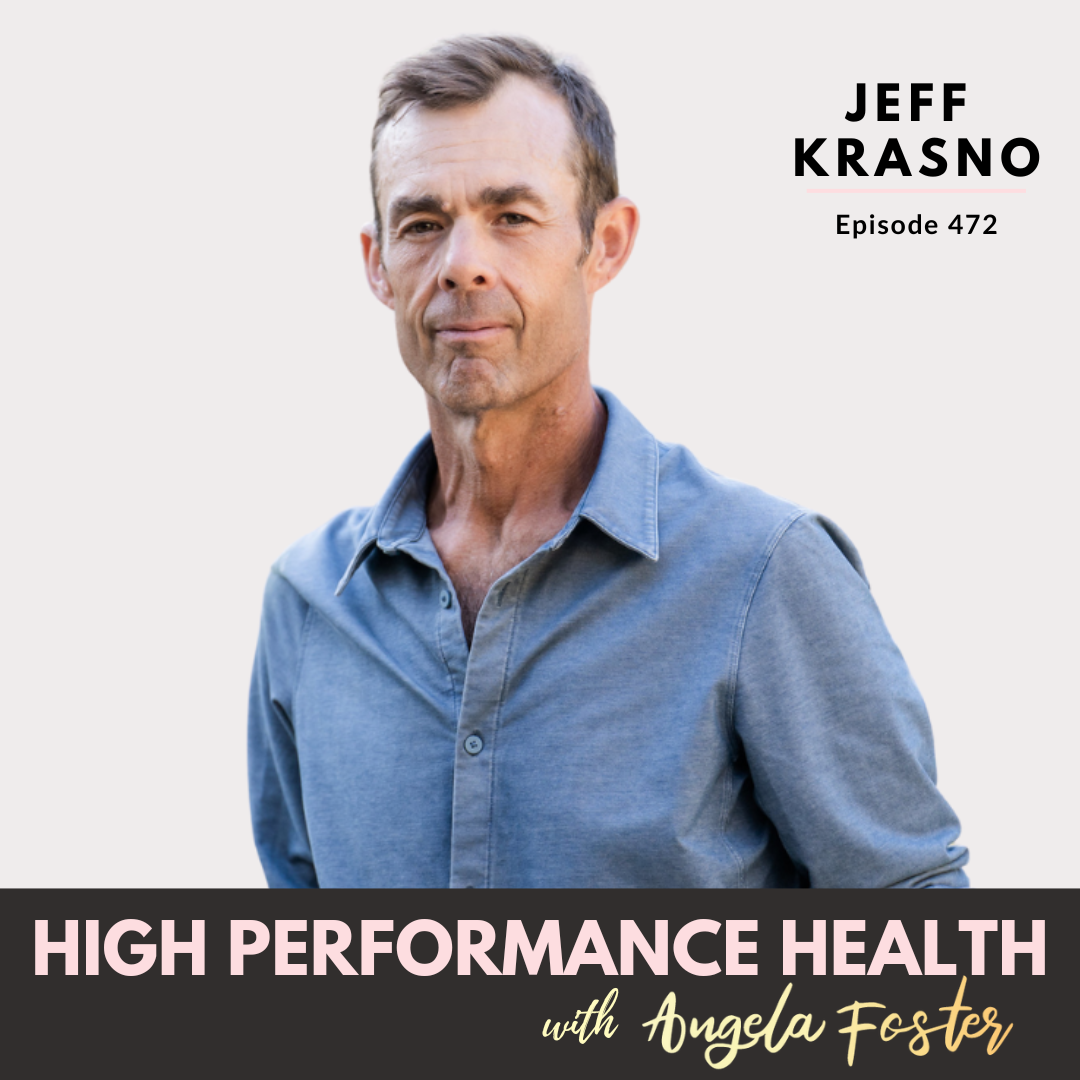
EP 472- What if Stress Isn’t the Enemy? How to Turn it Into Power | Jeff Krasno
In this bite-sized but powerful episode of High Performance Health, I sit down with the incredible Julie Gibson Clark—named one of the slowest-aging women alive—to talk about tuning into your body, spotting subtle hormone imbalances, and how a fibroid diagnosis challenged everything she thought she knew about her health.
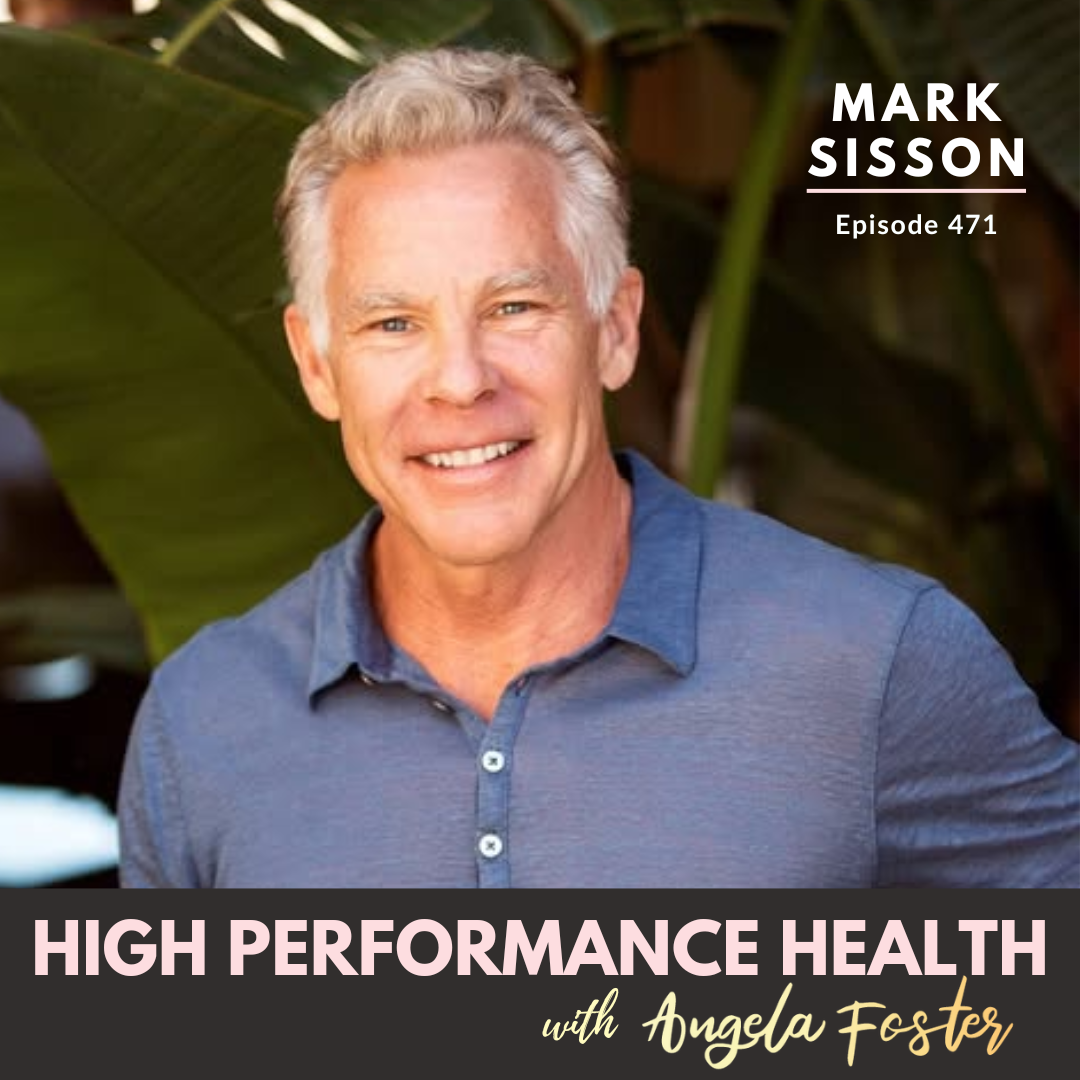
EP 471- Bitesize: Why Running Might Be Wrecking Your Hormones (And What to Do Instead) | Mark Sisson
In this bite-sized but powerful episode of High Performance Health, I sit down with the incredible Julie Gibson Clark—named one of the slowest-aging women alive—to talk about tuning into your body, spotting subtle hormone imbalances, and how a fibroid diagnosis challenged everything she thought she knew about her health.
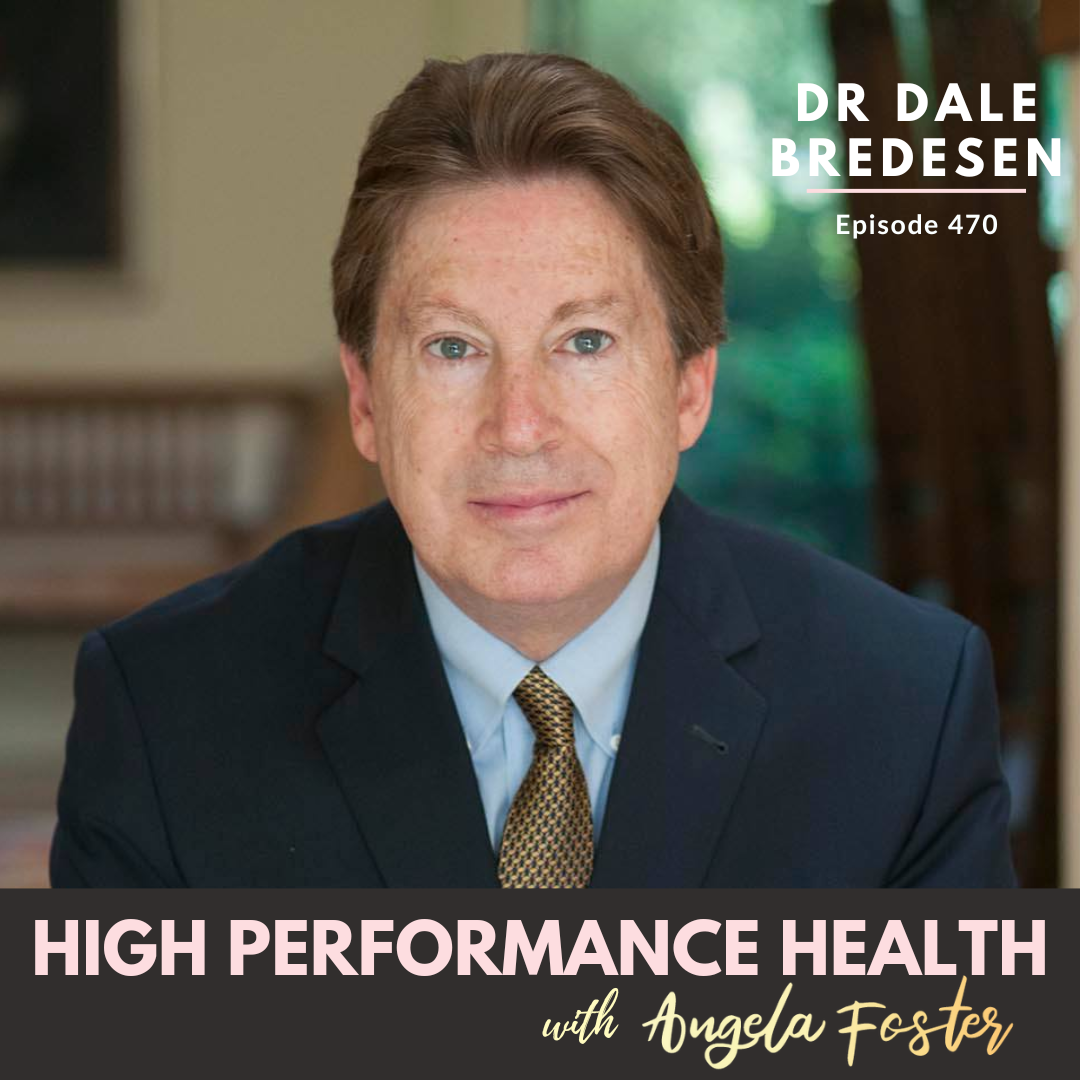
EP 470- How to Keep Your Brain Sharp to 100—Even If You Have the Alzheimer’s Gene | Dr Dale Bredesen
In this bite-sized but powerful episode of High Performance Health, I sit down with the incredible Julie Gibson Clark—named one of the slowest-aging women alive—to talk about tuning into your body, spotting subtle hormone imbalances, and how a fibroid diagnosis challenged everything she thought she knew about her health.
